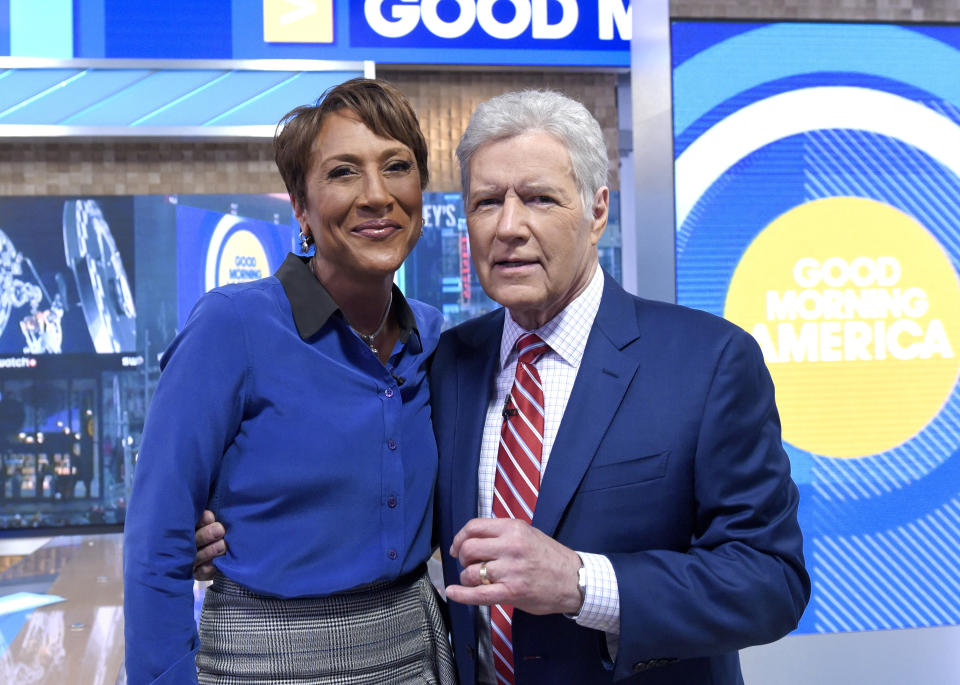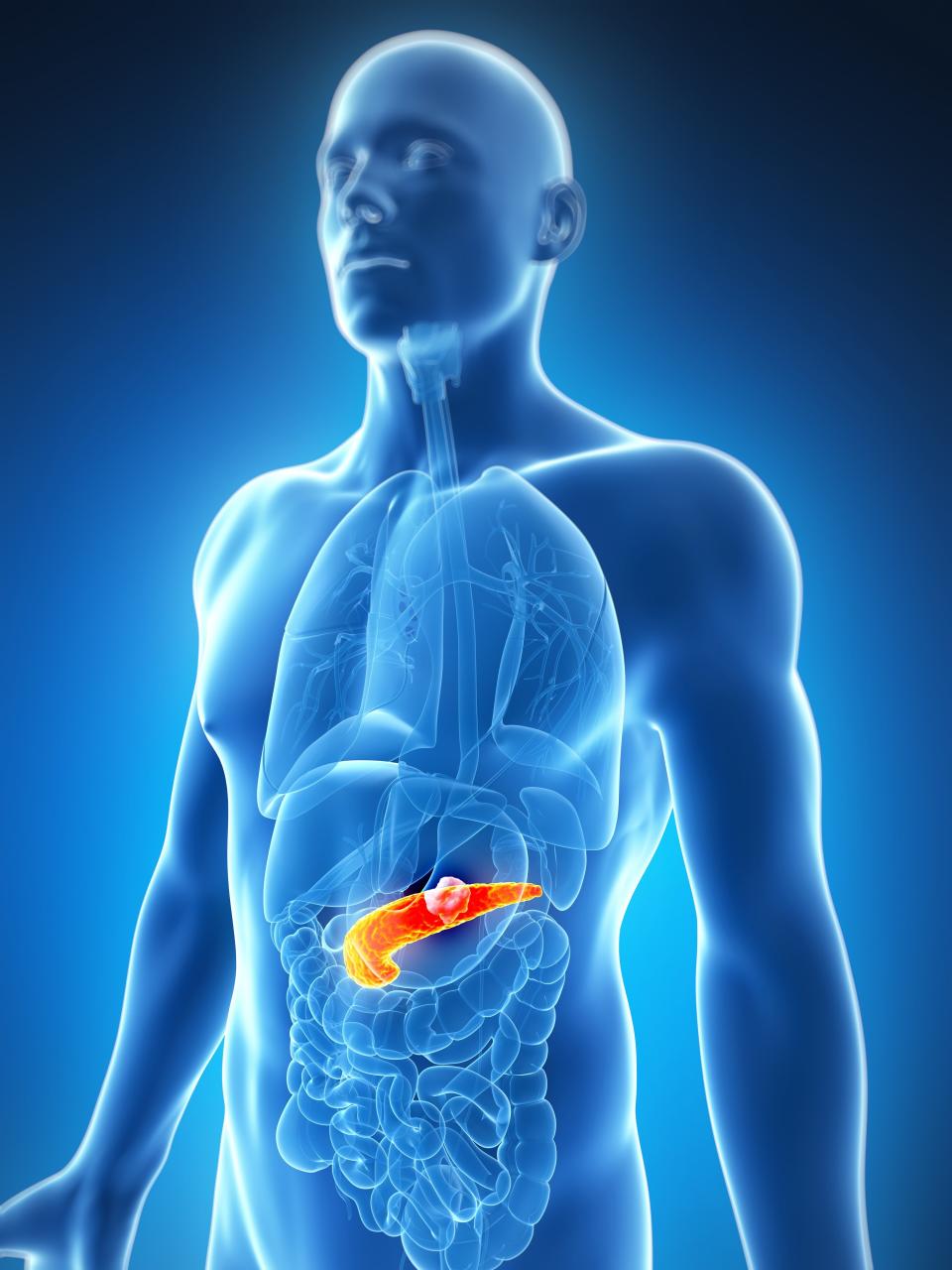'I'm not a big fan of sympathy votes': Alex Trebek celebrates 7th Daytime Emmy win

Alex Trebek is putting on a brave face despite his recent diagnosis with stage 4 pancreatic cancer.
The 78-year-old attended the 46th annual Daytime Emmy Awards on Sunday night where he picked up his seventh award for Outstanding Game Show Host for his work on “Jeopardy.”
Trebek received a standing ovation as he made his way to the stage to accept the award, delivering an emotional speech that showed off his wry sense of humour.
ALSO SEE: What The Health?! What you need to know about the deadly death cap mushroom
"I have worried about this moment. I was concerned that sympathy might play a big role in the voting this year. I'm not a big fan of sympathy votes. I believe that we should all be judges on the merits of our work,” the Canadian told the audience.
“But then I started thinking back to last year. Last year I was nominated, and I had just had major surgery to remove to two life-threatening blood clots on my brain. You would think that would have elicited a certain amount of sympathy," Trebek said jokingly. "But I didn't win!"

As the audience broke out into laughter, Trebek referenced Sally Field’s infamous 1985 Oscar speech saying, “Maybe I’ve been worrying about the wrong thing and I should just do what Sally Field did in a different venue many, many years ago and look at this as a sign that you guys like me and that you value my work. If that’s the case, I can live with that.”
Earlier this month the television host sat down with “Good Morning America” host Robin Roberts admitting he struggled with “deep sadness” after he was diagnosed with stage 4 pancreatic cancer.
ALSO SEE: 'Ketosis is a state of medical emergency': Jillian Michaels slams keto diet — yet again
“My oncologist tells me I’m doing well even though I don’t always feel it. I’ve had kidney stones, I’ve had ruptured discs, so I’m used to dealing with pain,” Trebek revealed. "What I’m not used to [is] dealing with the surges that come on suddenly of deep, deep sadness and it brings tears to my eye. I’ve discovered in this whole episode, ladies and gentlemen, that I’m a bit of a wuss."
Despite the grim survival rates, Trebek is undergoing chemotherapy which he admits can take its toll on the body and mind.

“Chemo affects people in different ways and people understand that, and there’s nothing wrong with saying, ‘Hey, I’m really depressed today and I don’t know why,’” he said.
Still, Trebek says the overwhelming support of his fans has been crucial in giving him both tremendous strength and gratitude.
ALSO SEE: Hero nurses who helped care for AIDS patients in the 1980s featured in new documentary
“I think I’ve learned that I’m an extremely lucky individual because, in spite of the fact that this diagnosis is not a good one, I’ve managed to receive so much love from so many people," he shared. "Quite often you don’t get that during your lifetime. After you’ve passed, after you’re dead, people say ‘He was such a good guy, we really liked him.’ But I’m getting that all before that event and it makes me feel really, really good.”

What is pancreatic cancer?
Pancreatic cancer affects the thin gland behind the stomach that produces fluid to aid in digestion and control blood sugar levels.
According to the Centre for Disease Control and Prevention (CDC), pancreatic cancer is one of the 10 most common forms of cancers, causing approximately seven per cent of all cancer related deaths.
ALSO SEE: Larry King is recovering from heart procedure, but ‘did not have a heart attack,’ says rep
Symptoms
Pancreatic cancer is often difficult to detect in its early stages due to its location in the body. Tumours often go unfelt and unnoticed even during routine physical exams, with no initial symptoms until the cancer grows or spreads to nearby organs.

When the cancer does eventually grow, typical symptoms include:
Jaundice: a yellowing of the eyes and skin due to buildup of bilirubin, a fluid produced by the liver. Pancreatic tumours or growths that begin near the liver can press on the bile duct, causing fluid back-up. Jaundice is one of the most common warning signs of pancreatic or liver cancers, and can also cause dark urine, greasy or light-coloured stool and itchy skin that turns yellow.
Back or abdominal pain due to cancer growth pressing on nearby organs
Unexplained weight loss and loss of appetite
Nausea and vomiting
Blood clots
Diabetes: While it’s rare that diabetes can be caused by pancreatic cancer, it is possible. The pancreas destroys insulin making cells and can cause people to feel thirsty and urinate more often. The onset of diabetes may be a sign something is wrong with the pancreas, prompting further examination
Survival rates
Survival rates for pancreatic cancer vary by stage. The American Cancer Society states the average number of people who survive five years after initial diagnosis is approximately nine per cent.
Patients with stage 4 cancers, meaning cancer that has spread to other parts of the body including the liver, lungs or bones, have a five-year survival rate of three per cent.

Who is at risk?
While pancreatic cancer can affect anyone regardless of gender, age or ethnicity, there are several factors that can increase your risk:
A family history of pancreatic cancer
History of pancreatitis (pancreatic inflammation)
Smoking or tobacco use
Obesity or poor diet
Diabetes
Family history of hereditary conditions such as Lynch syndrome and BRCA2 gene mutations that can be detected through genetic testing
Age: most pancreatic cancer diagnosis occur over the age of 65
Let us know what you think by commenting below and tweeting @YahooStyleCA!Follow us on Twitter and Instagram.
Check out Yahoo Canada’s podcast, Make It Reign — our hot takes on all things royals in a non-stuffy way — on Apple Podcasts and Google Podcasts.



